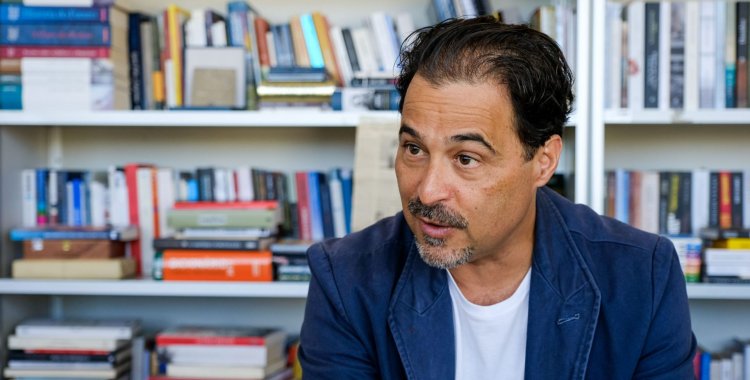The novelist's new book, this time as a biographer, will be launched on November 15th in Luanda, after the idea that arose in countless conversations that both – friends and fellow countrymen, from Huambo – had over the years, materialized in the "Lives and Deaths of Abel Chivukuvuku".
To the opportunity to portray the biographee's adventurous life, Agualusa added the story of the emergence of Angolan nationalism from the central plateau, the Kingdom of Bailundo, from where the lineage of the former leader of the National Union for the Total Independence of Angola (UNITA) descends. ).
"I was pleased to work with a person like Abel who, being a politician, doesn't mince words, is very direct, doesn't hide anything, makes the biographer's job a lot easier", said the writer, in an interview with Lusa.
For Agualusa, this is just one biography of Angola among several possible ones: "There are many stories and this one is not very well known," he said, pointing out that all recent history intersects with the life of Abel Chivukuvuku, who became a guerrilla shortly after of Angola's independence, on November 11, 1975.
For the writer, ascertaining the truth of the facts was not the most relevant: "Truth is a very totalitarian concept, there is no truth, there are many versions of the same event. What I tell are some versions of some events, but I don't have the pretense of telling a truth because I don't believe in it, there is no such thing."
And he gives as an example one of the most dramatic episodes in the life of Chivukuvuku, narrated in the book, which was an attempted lynching in 1992 during the political conflicts that followed the first multi-party elections in Angola, in which several UNITA leaders were "massacred" .
"I spoke to the person who was leading the group that killed some of those leaders and who almost killed Abel and I have both versions of that event", said the writer, saying that even small details, such as the fact that it was night or during the day, they differ depending on the sources.
"I just listen to people, I don't need to draw conclusions", he highlighted.
The novelist argues that books like this, which give testimony to an era, are important and hopes that the biography opens up discussion on a series of topics that are covered and encourages more people to convey their version of events.
In fact, he stressed, none of his books had ever aroused so much curiosity.
"I feel that this curiosity largely comes from young people who did not experience these events, who heard about them, have an incomplete vision of these events, these versions of the events," he told Lusa.
And he added that Angola knew, for many years, only one truth, the truth of the party in power, the Popular Movement for the Liberation of Angola (MPLA).
"This generates a certain curiosity because people know that truth, but don't know another, they know that version, but don't know another, there is this curiosity to know the other side, of what UNITA was, how it was formed, what the years were like. of war, the massacres in 1992 and the complicated times that followed", he noted.
The biography also becomes appealing due to the personality of the 65-year-old politician, who after leaving UNITA led the CASA-CE coalition and is now fighting for the legalization of his new political project PRA-JA Servir Angola.
"He is a very well-known figure and arouses great sympathy in Angola", said Agualusa, describing the life of Abel Chivukuvuku, who survived two plane crashes, an attempted lynching in Luanda and an attack almost as "an adventure novel".
The writer believes that 20 years ago the book would "perhaps be received differently", but noted that the political situation has evolved and that in last year's elections, UNITA, a party that he considers to have moved more quickly towards democratization than the MPLA , achieved victory for the first time in Luanda.
"The way young people today look at people like Abel Chivukuvuku is very different from what it was 20 or 30 years ago," he told Lusa.
But, he highlighted, a great history of the civil war remains to be written, which pitted MPLA government forces against UNITA rebels, founded by Jonas Savimbi, for three decades.
"It will have to be written one day and it will certainly collect these different voices that have been expressing themselves and I hope that even more will be manifesting themselves in the coming years", suggested Agualusa, urging that more protagonists of these historical moments leave their testimonies in biographical form or autobiographical.







